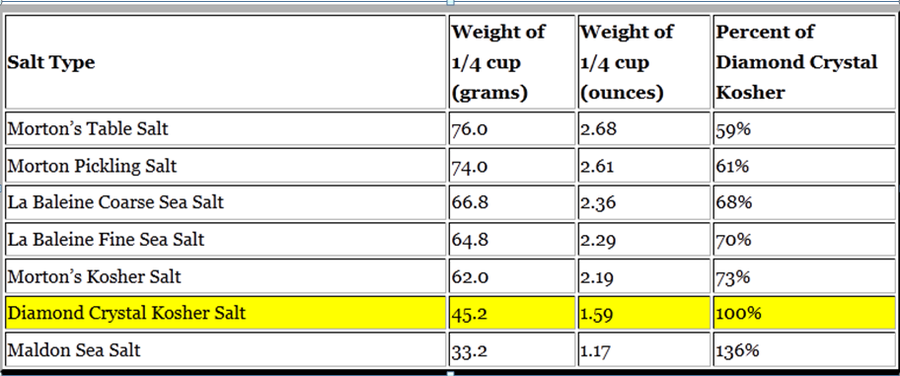I just bought a 13 oz box of Diamond Crystal Kosher salt just so I would not need to try to convert volume measurement from the 3 Tbsp per 5 lb. the original recipe calls for. Lo & behold, after opening the box, I discover it looks like regular table salt or canning salt. So, other than Kosher certification, it's no different than non-iodized table salt and is going to measure the same. I'm going to be messing with volume conversions anyway.

So, 10 lb. batch of meat. Recipe calls for 6 Tbsp of (coarse) Kosher salt. I'm guesstimating 4.5-5 Tbsp of this fine texture stuff. Anyone care to tell me what 6 Tbsp. of Kosher salt weighs? I'll just weigh the salt in my recipe? Thanks!
Jim B.
So, 10 lb. batch of meat. Recipe calls for 6 Tbsp of (coarse) Kosher salt. I'm guesstimating 4.5-5 Tbsp of this fine texture stuff. Anyone care to tell me what 6 Tbsp. of Kosher salt weighs? I'll just weigh the salt in my recipe? Thanks!
Jim B.






